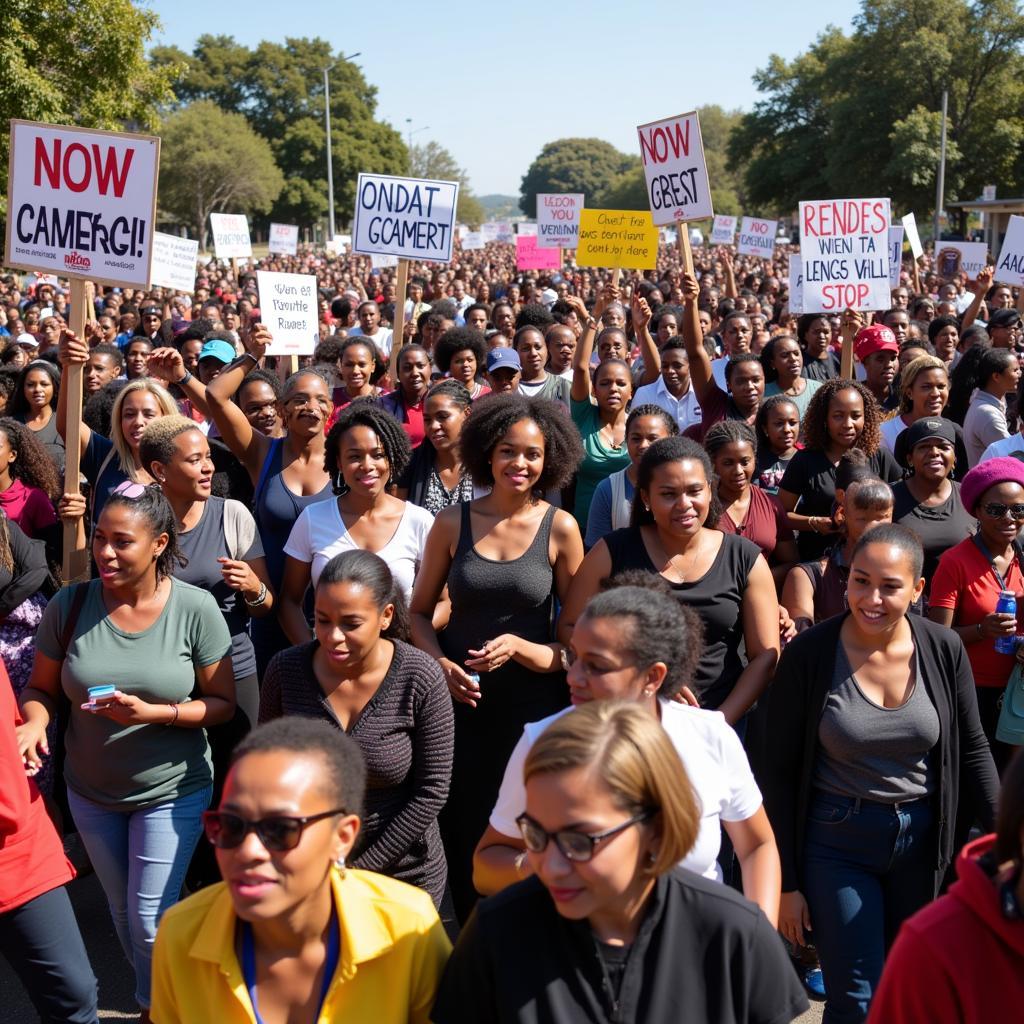South Africa, a nation renowned for its diverse cultural tapestry and tumultuous history, grapples with the question of patriarchy’s grip on its social fabric. While significant strides have been made towards gender equality, vestiges of patriarchal norms continue to influence power dynamics, economic opportunities, and societal perceptions.
Unveiling the Legacy of Patriarchy
Historically, South Africa, like many nations, has been shaped by patriarchal systems that privilege men over women. This legacy is deeply intertwined with the country’s colonial past and the apartheid regime, which further entrenched gender disparities. Traditional customs and beliefs often reinforced male dominance, limiting women’s access to education, economic participation, and decision-making roles.
The Struggle for Gender Equality
South Africa’s post-apartheid constitution stands as a beacon of hope, enshrining gender equality as a fundamental right. The government has implemented progressive policies and legislation aimed at dismantling patriarchal structures and empowering women. Notably, the Domestic Violence Act, the Recognition of Customary Marriages Act, and the Promotion of Equality and Prevention of Unfair Discrimination Act have been instrumental in challenging discriminatory practices.
 South African women marching for equal rights
South African women marching for equal rights
Persistent Challenges and Inequalities
Despite these advancements, deep-seated patriarchal attitudes persist, manifesting in various aspects of South African society. Gender-based violence remains a pervasive issue, with alarming rates of femicide and domestic abuse. Women continue to be underrepresented in leadership positions across various sectors, including politics, business, and academia.
Economic Disparities and Gender Roles
Economic inequality often intersects with patriarchal norms, further disadvantaging women. Traditional gender roles often confine women to unpaid care work and limit their access to economic opportunities. The gender pay gap persists, with women earning significantly less than their male counterparts for equal work.
Shifting Societal Norms
A growing movement of activists, organizations, and individuals are actively challenging patriarchal norms and advocating for gender equality in South Africa. Educational campaigns, awareness programs, and community dialogues are crucial in dismantling harmful stereotypes and fostering a culture of respect and equal opportunity.
A Vision for a More Equitable Future
Creating a truly equitable South Africa requires a multi-faceted approach that addresses the root causes of patriarchy. This includes promoting women’s economic empowerment, ensuring equal access to education and healthcare, and addressing gender-based violence through comprehensive legal frameworks and support systems.
Conclusion
While the question “Is South Africa A Patriarchal Society?” may not have a simple answer, acknowledging the enduring legacy of patriarchy and actively working towards its dismantling is essential. By embracing gender equality as a fundamental value and fostering a society that empowers all its members, South Africa can pave the way for a more just and equitable future.
FAQs
1. What is being done to address gender-based violence in South Africa?
The South African government has implemented various measures, including strengthening legislation, establishing specialized courts, and providing support services for survivors. However, challenges remain in effectively enforcing laws and addressing the root causes of violence.
2. How does patriarchy affect men in South Africa?
Patriarchal norms can also negatively impact men by imposing rigid expectations of masculinity and limiting their emotional expression.
3. What role can education play in challenging patriarchy?
Education is crucial in promoting gender equality by challenging stereotypes, fostering critical thinking, and empowering individuals to advocate for their rights.
4. How can individuals contribute to creating a more gender-equal society?
Individuals can challenge their own biases, promote respectful relationships, and support organizations working towards gender equality.
5. What are some resources available for those experiencing gender-based discrimination or violence?
Numerous organizations in South Africa provide support and advocacy for survivors of gender-based violence, including legal aid, counseling, and shelter services.
For further support and information, please contact:
Phone Number: 02043854663
Email: [email protected]
Address: Khu 34, Bắc Giang, 260000, Việt Nam
Our dedicated team is available 24/7 to provide assistance.